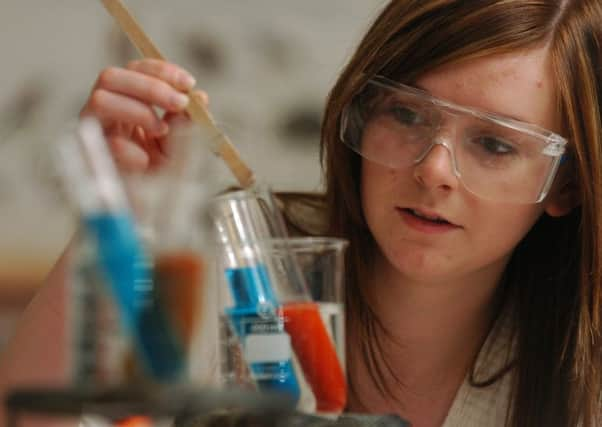Leaders: SNP’s English vote | Science crisis?


This self-denying ordinance told a story of mutual respect: just as they would rather Scotland ran its own affairs, so they would never dream of imposing their will on the English.
But the problem with this Nationalist position was always that it was not as straightforward as it might have seemed.
Advertisement
Hide AdAdvertisement
Hide AdA Westminster vote on building new schools in England, for example, would result in an equivalent proportion of that extra spending coming north as part of the Scottish Government’s block grant, courtesy of the Barnett formula.
Conversely, cuts to the English NHS budget inevitably mean a cut in the cash eventually coming to Scotland.
English politics has Scottish consequences.
Yesterday, First Minister Nicola Sturgeon acknowledged this reality and made clear her MPs would vote in matters relating to NHS privatisation south of the Border in order, she said, to protect the amount of money we receive in Scotland.
And yet there is a flaw in her argument.
Greater use of the private sector in the NHS does not, per se, mean a drop in public spending. Private contractors must be paid, after all, and taxpayers pick up the tab.
The threat of privatisation is a red herring in all of this. Theoretically, increased spending on private health care services in England would mean a greater lump sum for Scotland.
In fact, SNP MPs could take an interest in English NHS spending if privatisation was entirely off the table, but budgets were being affected by, say, a drive to cut wasteful bureaucracy, with a consequential cut in Scottish funding.
The First Minister may have calculated that this new position will put pressure on Westminster to grant Scotland full fiscal autonomy. After all, if Scotland was in charge of its own finances, and the Barnett formula was scrapped, there would be no reason for the Scots to be interested in levels of English public services.
But it would be naive of the SNP to think they could pursue such an agenda without consequences for Anglo-Scottish relations.
Advertisement
Hide AdAdvertisement
Hide AdThe risk to Nicola Sturgeon is that she and her party simply increase English resentment towards Scotland and the Scots.
That would considerably raise the stakes for any MP south of the Border – Labour leader Ed Miliband, for example – who may be tempted to accommodate Scottish demands for more powers for Holyrood.
Why would Mr Miliband, in this example, choose to open himself to the accusation that he was being led a merry dance by Scottish Nationalists?
Ms Sturgeon’s strategy, at present, looks as if it is too clever by half. It may yet prove to be self-defeating.
Creative sciences need nurturing
SCOTS are famed for intellectual curiosity. Through the centuries, the questions “how does it work?” and “how can it be made to work better?” have been asked by Scots of everything from the steam engine, to the human body, to the science of electromagnetism.
So proud are we of our national achievements in invention and scientific progress that we have even commemorated them on tea towels.
But are we becoming less curious as a nation?
Scottish Labour’s shadow education secretary Iain Gray yesterday lamented the fact that increasing numbers of Scots pupils do not want to study science – and that teachers don’t much want to teach it, either.
There is still great innovation in Scotland, particularly in areas such as bioscience. But, despite a great number of high-profile successes, Mr Gray’s warning is a timely one.
Advertisement
Hide AdAdvertisement
Hide AdIf we do not know how things work, and if we are not interested in finding out, how can we possibly hope to innovate to improve them?
For too long, school children have found themselves divided into two groups – those with an aptitude for science and those who find themselves drawn to the arts.
But this divide is an illusion. The sciences are not dull and dry but demand the use of creativity and imagination.
It is up to our schools to make these subjects as appealing as possible, to open them up to kids who might not normally be considered naturals.
Scotland can be proud of its history of scientific achievements. That legacy demands we do all we can to ensure continued success in these fields.